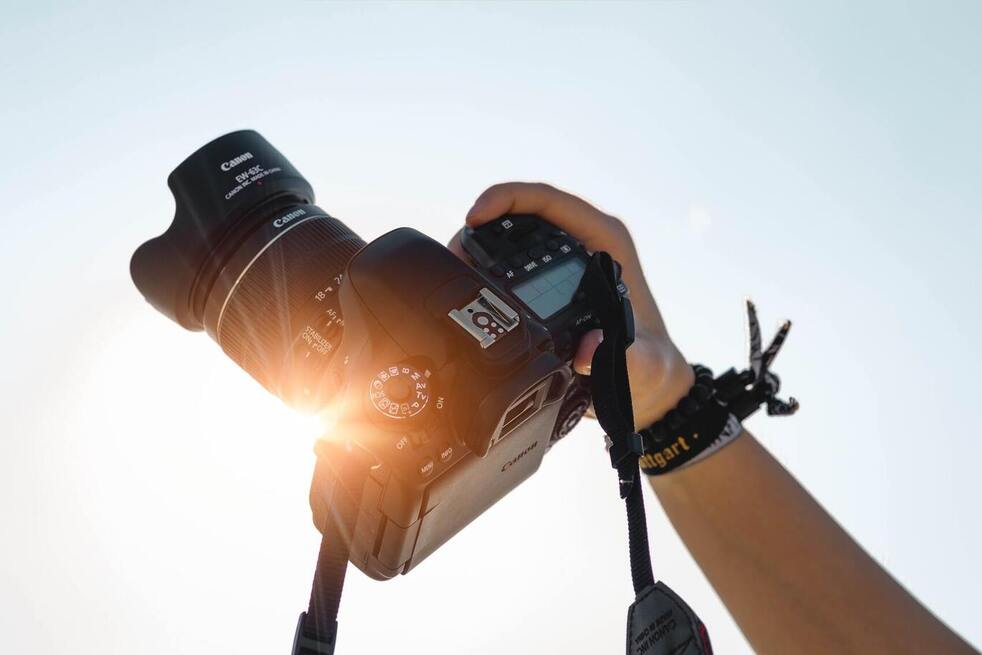Photography Terms and Conditions
Do I Need a Photography Contract?
Please read on.

Photography terms and conditions, or a photography contract or agreement, are different from the terms and conditions used by other businesses. A photography contract requires you to consider a number of factors which are unique to providing photography services as well on top of the key commercial and legal terms.
Having robust and tailored terms and conditions for your photography business is invaluable to protect you from legal risks.
Being very clear in writing about all these terms really does give the best chance of success not to have disputes with your clients, which can be extremely distracting, costly and potentially damage your brand if it’s a big dispute, or they leave a horrible Google review or Facebook review.
Whether you are a commercial photographer, a wedding photographer, a fashion/model photographer, landscape or wildlife photographer or something else, you need to protect your work. Read on for more information on the importance of having robust and tailored photography terms and conditions, and what they should contain.
How Do You Write Terms and Conditions for Photography?
The following are key terms to consider including in your photography terms and conditions.
Should I use a free photography service agreement template?
In short. No. Very few templates will actually properly cover you for exactly what you’re doing.
Some we have seen don’t provide much legal protection at all.
Although you don’t have any obligations to engage a lawyer to draft your photography service agreement, it’s highly recommended to ensure the terms fit the needs of your business. You also need to make sure that the document contains terms relating to the Laws applicable in your country or state.
This is why you should seek assistance from an experienced lawyer, instead of using a free photography service agreement template. Some we’ve found people using in Australia were US based documents or elsewhere around the world and many of those weren’t worth the paper they were written on.
Related: Coaching Terms and Conditions, Recruitment Terms and Conditions, Website Terms and Conditions, Event Terms and Conditions, Competition Terms and Conditions, Terms and Conditions of Business.
Photography Terms and Conditions FAQs
Can I write my own photography contract?
You can decide to write your own photography contract, however there are some risks in doing so. If you write your own contract, you may miss some key terms, add contradictory clauses, or add obligations that are actually against the Law. An experienced lawyer will ensure that your business is protected within the rights and obligations available to you at Law.
Remember, as a business owner, the buck stops with you. If any customer/client brings an action before a Court or Tribunal, the consumer is a protected species, not you. They view us as businesses far larger than what we are and the consumer as “the little guy”. You have to demonstrate at Law that all your terms are clear, plain English, nothing contradictory or silent, nothing that is contrary to consumer law etc. There is a large list of items to consider.
Plus, the advantage of having these documents drawn up legally is that you have peace-of-mind that you are in fact legally covered for what you are doing. By going through this process, you actually learn a lot and become extremely familiar with all your legal terms, which is quite powerful. Having robust and comprehensive legal terms and conditions will inevitably lead to fewer disputes and therefore happier clients. Finally, you get to ask any legal questions along the way with them and obtain legal advice throughout that process. It’s a no-brainer.
How long should a photography contract last?
A photography contract will last for the terms of the engagement. Some clauses in the contract may survive termination of the contract, such as intellectual property or confidentiality, if it is indicated in the contract. There needs to be specific reference made in the contract for these items so that it is very clear.
What should a wedding photography contract include?
A wedding photography contract should include basic details such as the details of parties, or when and where the photographs are to be taken. It should also address any copyright or intellectual property ownership, payment details and if any deposits are required, a cancellation, rescheduling and refund policy. These are just a few examples of things to consider.
What is a commercial photography contract?
A commercial photography contract is a contract between a photographer and a business (whether sole trader or company), which defines the terms of engagement of the photographer by the business. Commercial photography is used to promote and market products or services.
What should a model release include?
A model release is a written agreement between the photographer and the individual or business using the photography services. The purpose of the agreement is to protect– release– the photographer from liability, so it should include a clause limiting liability. The document should also address the terms under which one party may use photos taken of the individuals or businesses.
Get in Touch
As a photographer, it’s best to have a legally drafted set of terms and conditions in order to make your customers aware of their obligations, and have your terms clearly defined.
Progressive Legal can draft your standard photographer terms and conditions for a fixed fee starting from $1,400 + GST (from $1,200 + GST for a start-up) which includes all associated advice, taking your instructions, drafting the documents and a round of changes if necessary.
The terms are completely tailored for your business so you know they will cover you for what you are doing.



